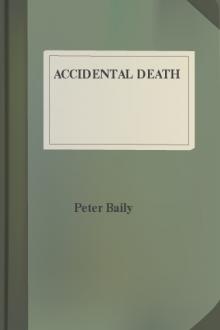Eco: Foucalt's Pendulum by eco foucault (important books to read .txt) 📗

- Author: eco foucault
Book online «Eco: Foucalt's Pendulum by eco foucault (important books to read .txt) 📗». Author eco foucault
"I'm doing my thesis onthem. If you do your thesis on syphilis, you end up loving even theSpirochaeta pallida."
"It was lovely," Doloressaid. "Like a movie. But I have to go now. I have to mimeograph theleaflets for tomorrow morning. There's picketing at the Marellifactory."
"Lucky you. You canafford it," Belbo said. He raised a weary hand and stroked herhair. Then he ordered what he said was his last whiskey. "It'salmost midnight. I say that not for normal people, I say it forDiotallevi's benefit. But let's go on. I want to hear about thetrial. Who, what, when, and why."
"Cur, quomodo, quando,"Diotallevi agreed. "Yes, yes."
14
He declares that he saw,the day before, five hundred and four brothers of the order led tothe stake because they would not confess the above-mentionederrors, and he heard it said that they were burned. But he fearsthat he himself would not resist if he were to be burned, that hewould confess in the presence of the lord magistrates and anyoneelse, if questioned, and say that all the errors with which theorder has been charged are true; that he, if asked, would alsoconfess to killing Our Lord.
¡XTestimony of Aimery deVilliers-le-Duc, May 13, 1310
A trial full ofsilences, contradictions, enigmas, and acts of stupidity. The actsof stupidity were the most obvious, and, because they wereinexplicable, they generally coincided with the enigmas. In thosehalcyon days I believed that the source of enigma was stupidity.Then the other evening in the periscope I decided that the mostterrible enigmas are those that mask themselves as madness. But nowI have come to believe that the whole world is an enigma, aharmless enigma that is made terrible by our own mad attempt tointerpret it as though it had an underlying truth.
With the collapse of theChristian kingdoms of the Holy Land, the Templars were left withouta purpose. Or, rather, they soon turned their means into an end;they spent their time managing their immense wealth. Philip theFair, a monarch intent on building a centralized state, naturallydisliked them. They were a sovereign order, beyond any royalcontrol. The grand master ranked as a prince of the blood; hecommanded an army, administered vast landholdings, was elected likethe emperor, and had absolute authority. The French treasury waslocated in the Temple in Paris, outside the king's control. TheTemplars were the trustees, proxies, and administrators of anaccount that was the king's only in name. They paid funds in andout and manipulated the interest; they acted like a great privatebank but enjoyed all the privileges and exemptions of a stateinstitution. The king's treasurer was a Templar. How could a rulerrule under such conditions?
If you can't lick ¡¥em,join ¡¥em. Philip asked to be made an honorary Templar. Requestdenied. An insult no king could swallow. He suggested that the popemerge Templars and Hospitalers and place the new order under thecontrol of one of his sons. Jacques de Molay, grand master of theTemple, arrived with great pomp from Cyprus, where he lived like amonarch in exile. He handed the pope a memorandum that supposedlyassessed the advantages of the merger but actually emphasized itsdisadvantages. Molay brazenly argued that, among other things, theTemplars were far wealthier than the Hospitalers, that the mergerwould enrich the latter at the expense of the former, thus puttingthe souls of his knights in jeopardy. Molay won this first round:the plan was shelved.
The only recourse leftwas slander, and here the king held good cards. Rumors about theTemplars had been circulating for a long time. Imagine how these"colonials" must have looked to right-thinking Frenchmen, thesepeople who collected tithes everywhere while giving nothing inreturn, not even¡Xanymore¡X their own blood as guardians of theHoly Sepulcher. True, they were Frenchmen. But not completely.People saw them as pieds noirs; at the time, the term was poulains.The Templars flaunted their exotic ways; it was said that amongthemselves they even spoke the language of the Moors, with whichthey were familiar. Though they were monks, their savage nature wascommon knowledge: some years before, Pope Innocent III had issued abull entiSed De insolentia Templariorum. They had taken a vow ofpoverty, but they lived with the pomp of aristocrats, with thegreed of the new merchant classes, and with the effrontery of acorps of musketeers.
The whispering campaignwas not long in coming: the Templars were homosexuals, heretics,idolaters worshiping a bearded head of unknown provenance. Perhapsthey shared the secrets of the Isma'ilis, for they had had dealingswith the Assassins of the Old Man of the Mountain. Philip and hisadvisers put these rumors to good use.
Philip was assisted byhis two evil geniuses, Marigny and Nogaret. It was Marigny whoultimately got control of the Templar treasury, administering it onthe king's behalf until it was transferred to the Hospitalers. Itis not clear who got the interest. Nogaret, the king's lordchancellor, in 1303 had been the strategist behind the incident inAnagni, when Sciarra Colonna slapped Boniface VIII and the popedied of humiliation less than a month later.
Then a man by the nameof Esquin de Floyran appeared on the scene. Apparently, whileimprisoned for unspecified crimes and on the verge of beingexecuted, Floyran encountered a renegade Templar in his cell andfrom him heard a terrible confession. In exchange for his life anda tidy sum, Floyran told everything. Which turned out to be exactlywhat everybody was already rumoring. Now the rumors became formaldepositions before a magistrate. The king transmitted Floyran'ssensational revelations to the pope, Clement V, who later moved thepapal seat to Avignon. Clement believed some of the charges, butknew it would not be easy to interfere in the Temple's affairs. In1307, however, he agreed to open an official inquiry. Molay, thegrand master, was informed, but declared that his conscience wasclear. At the king's side, he continued to take part in officialceremonies, a prince among princes. Clement V seemed to bestalling, and the king began to suspect that the pope wanted togive the Templars time to disappear. But no, the Templars went ondrinking and blaspheming in their commanderies, seemingly unawareof the danger. And this is the first enigma.
On September 14, 1307,the king sent sealed messages to all the bailiffs and seneschals ofthe realm, ordering





Comments (0)